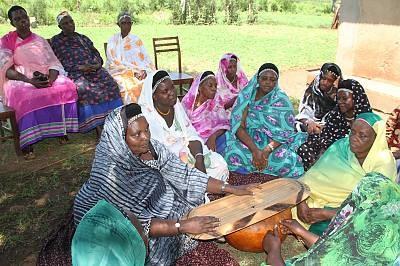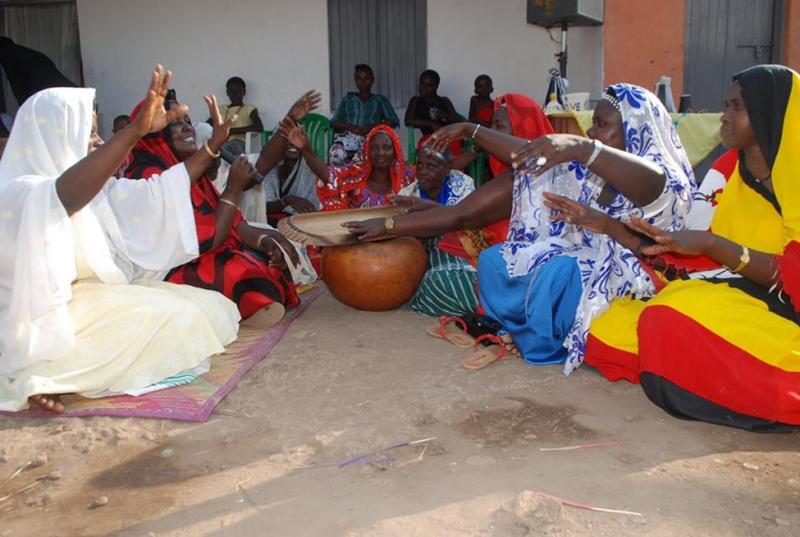Obumu Habwekigendererwa (Uni-e-s pour une cause) poursuit l’héritage de Koogere
L’histoire de Koogere
L’Empire Kitara englobait autrefois certaines parties actuelles de l’est de l’Ouganda, certaines régions du nord de la Tanzanie et de l’est de la République démocratique du Congo. Dans cet empire, on raconte qu’une femme nommée Koogere régna sur la chefferie de Busongara. On dit que c’était une cheffe d’une exceptionnelle sagesse, une dirigeante et entrepreneure de talent qui, entre autres réussites, a rendu ses communautés prospères socialement et économiquement. La tradition orale Koogere raconte l’histoire du leadership de Koogere, tout en transmettant son héritage à la communauté, de génération en génération.
« Busongora bwa Koogere mbere ikamwa niboroga, Amagita gatera amaato, amata geser’ente » (Busongora de Koogere, la terre riche en bétail et en produits laitiers)
L’héritage actuel de Koogere

Le Koogere Women Empowerment Programme (Programme d’autonomisation des femmes Koogere, site en anglais) de Engabu Za Tooro - la Plateforme des jeunes de Tooro pour l’action, EZT- a été mis en place à partir de cette tradition orale et s’en inspire. Membre de l’AWID depuis le début de 2015, EZT est une organisation autochtone d’Ouganda fondée en 1999 qui travaille auprès de communautés dans la partie occidentale du pays. EZT a pour objectif de renforcer les capacités de ces communautés faisant usage de pratiques culturelles pour promouvoir l’égalité de genre, les droits des femmes autochtones et l’autonomie communautaire. Leurs principales activités visent à promouvoir la mobilisation des femmes des communautés locales et le renforcement de leur leadership, à les encourager à produire et distribuer ces produits dans les secteurs du commerce agroalimentaire et des entreprises culturelles. L’organisation oeuvre également pour mettre un terme à la violence intrafamiliale et pour la promotion des droits économiques des femmes.
EZT travaille en images et en vidéos.
Regardez la vidéo sur la tradition orale Koogere (en anglais)

EZT est reconnue par l’Organisation des Nations unies pour l’éducation, la science et la culture (UNESCO) et œuvre actuellement à ce que sa candidature pour la sauvegarde de sa tradition orale soit acceptée sur la Liste des Trésors du patrimoine mondial culturel immatériel de l’UNESCO au cours de la 10ème session du Comité intergouvernemental de sauvegarde du patrimoine culturel immatériel. La session aura lieu du 30 novembre au 4 décembre 2015 à Windhoek, en Namibie. Au cours de celle-ci, des femmes autochtones et des militantes pour les droits des femmes présenteront cette tradition orale (site en anglais).
« Engabu Za Tooro: Passionné-e d’égalité sociale et d’inclusion. »
